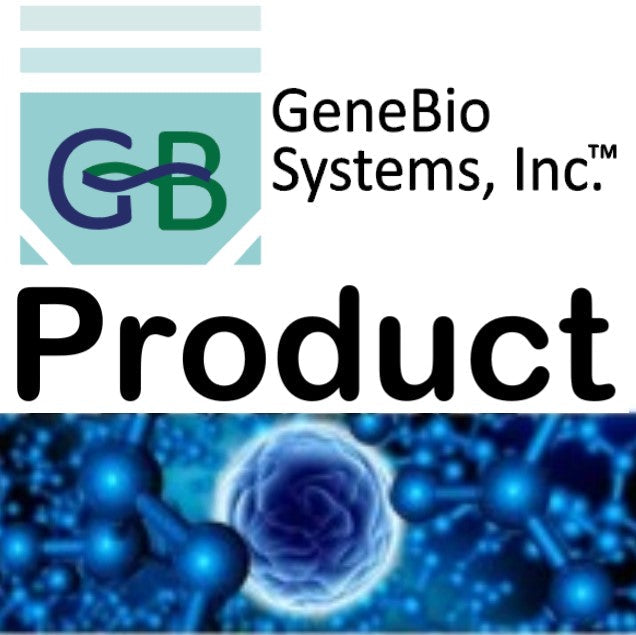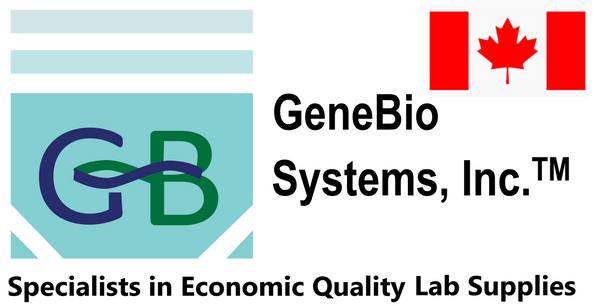Gene Bio Systems
Recombinant Mouse Nucleophosmin(Npm1)
Recombinant Mouse Nucleophosmin(Npm1)
SKU:CSB-EP737048MO
Couldn't load pickup availability
>Several Other Sizes Are Also Available. Please Inquire. Default Size: 200ug
Updated Date: Stock Protein updated on 20170405
Research areas: Epigenetics and Nuclear Signaling
Target / Protein: Npm1
Biologically active: Not Tested
Expression system: E.coli
Species of origin: Mus musculus (Mouse)
Delivery time: 3-7 business days
Uniprot ID: Q61937
AA Sequence: MEDSMDMDMSPLRPQNYLFGCELKADKDYHFKVDNDENEHQLSLRTVSLGAGAKDELHIVEAEAMNYEGSPIKVTLATLKMSVQPTVSLGGFEITPPVVLRLKCGSGPVHISGQHLVAVEEDAESEDEDEEDVKLLGMSGKRSAPGGGNKVPQKKVKLDEDDEDDDEDDEDDEDDDDDDFDEEETEEKVPVKKSVRDTPAKNAQKSNQNGKDLKPSTPRSKGQESFKKQEKTPKTPKGPSSVEDIKAKMQASIEKGGSLPKVEAKFINYVKNCFRMTDQEAIQDLWQWRKSL
Tag info: N-terminal 6xHis-SUMO-tagged
Expression Region: 1-292aa
Protein length: Full Length
MW: 48.6 kDa
Alternative Name(s): Nucleolar phosphoprotein B23 Nucleolar protein NO38 Numatrin
Relevance: Involved in diverse cellular processes such as ribosome biogenesis, centrosome duplication, protein chaperoning, histone assembly, cell proliferation, and regulation of tumor suppressors p53/TP53 and ARF. Binds ribosome presumably to drive ribosome nuclear export. Associated with nucleolar ribonucleoprotein structures and bind single-stranded nucleic acids. Acts as a chaperonin for the core histones H3, H2B and H4. Stimulates APEX1 endonuclease activity on apurinic/apyrimidinic (AP) double-stranded DNA but inhibits APEX1 endonuclease activity on AP single-stranded RNA. May exert a control of APEX1 endonuclease activity within nucleoli devoted to repair AP on rDNA and the removal of oxidized rRNA molecules. In concert with BRCA2, regulates centrosome duplication. Regulates centriole duplication: phosphorylation by PLK2 is able to trigger centriole replication. Negatively regulates the activation of EIF2AK2/PKR and suppresses apoptosis through inhibition of EIF2AK2/PKR autophosphorylation. Antagonizes the inhibitory effect of ATF5 on cell proliferation and relieves ATF5-induced G2/M blockade.
Reference: "The status, quality, and expansion of the NIH full-length cDNA project: the Mammalian Gene Collection (MGC)."The MGC Project Team Genome Res. 14:2121-2127(2004)
Purity: Greater than 90% as determined by SDS-PAGE.
Storage: The shelf life is related to many factors, storage state, buffer ingredients, storage temperature and the stability of the protein itself. Generally, the shelf life of liquid form is 6 months at -20℃/-80℃. The shelf life of lyophilized form is 12 months at -20℃/-80℃.
Notes: Repeated freezing and thawing is not recommended. Store working aliquots at 4℃ for up to one week.


